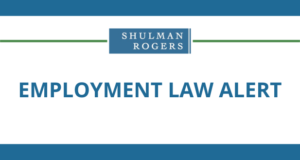
DOJ Announces Intention to Use False Claims Act to Target Any Receipt of Federal Funds that Knowingly Violates Federal Civil Rights Laws
On May 19, 2025, the Department of Justice (“DOJ”) launched a new Civil Rights Fraud Initiative via a memorandum. The memorandum reiterated the DOJ’s commitment to “enforcing civil rights laws and ensuring equal protection under the law.” The DOJ also noted that the False Claims Act (FCA) will be the primary enforcement tool of the DOJ. The FCA can be implicated when “a federal contractor or recipient of federal funds knowingly violates civil rights laws…and falsely certifies compliance with such laws.” The FCA carries with it the potential for treble damages, significant penalties and the potential for criminal charges. Furthermore, the FCA permits private citizen whistleblowers, also known as “realtors,” to file “qui tam” suits. To that end, the memorandum encouraged private citizens to report instances of discrimination by federal funding recipients. Relevant to employers, the memorandum specifically identified preferences, mandates, policies, programs and activities that assign benefits or burdens on race, ethnicity or national origin.
Like any statutory violation, for a successful FCA claim, there are specific elements the government must prove. For example, the representation must be fraudulent, knowing and material. Whether or not the representations at issue satisfy the materiality requirement will be a question of law and fact to be evaluated on a case-by-case basis.
Federal contractors and grant recipients should review their compliance with federal civil rights laws and be mindful of the DOJ’s commitment when making representations to the government. We previously recommended conducting a privileged compliance audit, particularly if you are a recipient of federal funds. We can also assist with evaluating what may constitute a false certification of compliance with federal civil rights laws that could expose federal contractors and grant recipients to legal risk. As for the increased risk of qui tam suits, now is a great time for employers to review and evaluate their internal investigation protocols. Please do not hesitate to reach out to us for assistance.
Stay up to date with all the latest news and events.